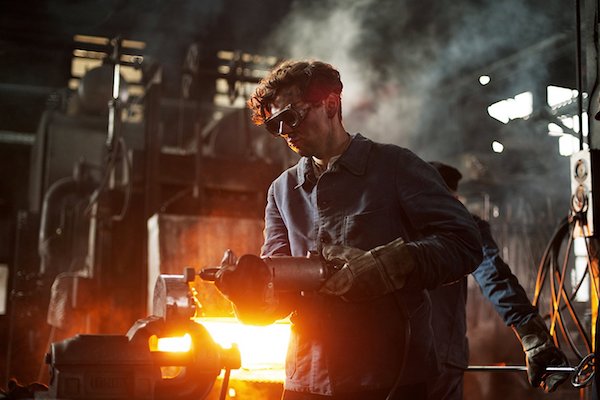
'13 Minutes' examines the man behind the 1939 bomb targeting Hitler
By Diane Carson
In anticipation of the November 8, 1939, Nazi rally in Munich presided over by Adolph Hitler, Johann Georg Elser planted a bomb with a timer set to detonate the explosive during Hitler's address. As the title of director Oliver Hirschbiegel's 13 Minutes signals, Hitler left the building thirteen minutes before the explosion that killed eight people and injured sixty-two.
Quickly tracked down, Elser was arrested, tortured, and confessed after Nazis rounded up and threatened his ex-fiancé and relatives. His inquisitors and the Fuhrer refused to believe that Elser constructed and executed this event alone. 13 Minutes shows how and why he did, flashing back and forward, dramatizing the Nazis increasingly oppressive victimization of German citizens that prompted Elser, a musician, carpenter, and eventually steelworks employee, to devise and plant the bomb. It is here that the interest resides, watching events of the late 1930s in small German villages as the Nazis ruthlessly retaliate against any opposition.
Ironically, one of the Nazi officers does come to believe Elser is the sole agent after Georg diagrams his invention. The German officer is overruled and also becomes a victim, showing the effect of the despotic Nazi culture on even its more reasonable participants who get caught up in repression of any reasoned responses. This officer is equally powerless, adding complexity to what is usually a monochromatic depiction. Similarly, Elser's love Elsa, married to an alcoholic brute, provides a subplot highlighting ways the Nazis enabled cruel citizens to indulge their malice.
Technically Hirschbiegel shows a keen eye for fresh, effective compositions that add tension and convey emotions. He moves the camera elegantly and sparingly, tracking in or retreating with authority. Similarly, he refrains from overuse of music and sound, adding such additions only when necessary. As Elser, Christian Friedel has a charismatic presence, often merely observing, inviting our identification with his outrage, an emotion easily summoned. Upsetting torture scenes confirm the Nazis inhumanity but, once established, the film doesn't wallow in the barbarity. 13 Minutes particularizes the inhumanity through one man's action. The narrowness of the focus brings into sharp relief the lead up to Hitler's mass murders to follow. At Landmark's Tivoli Theatre.


